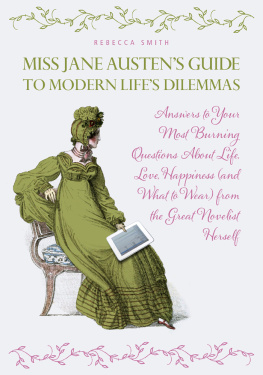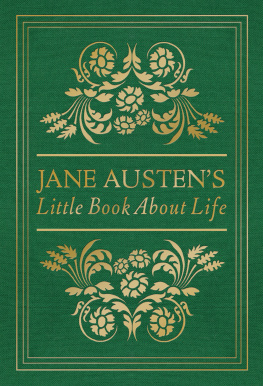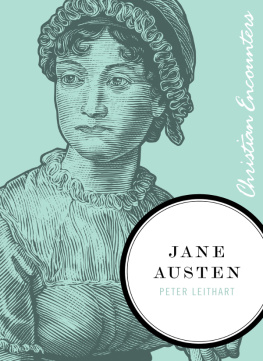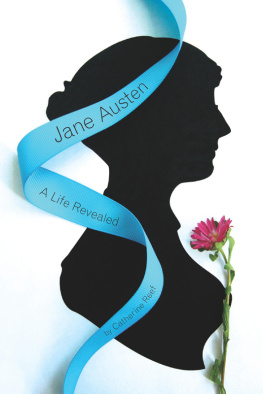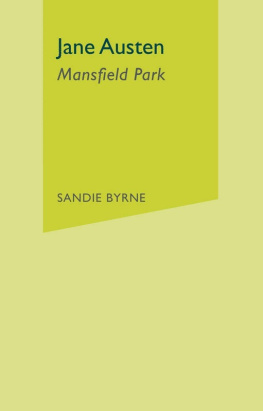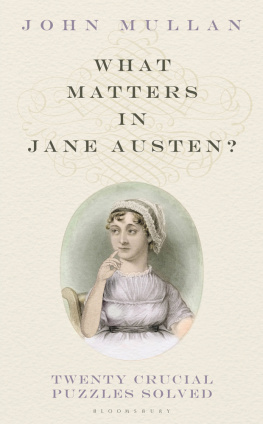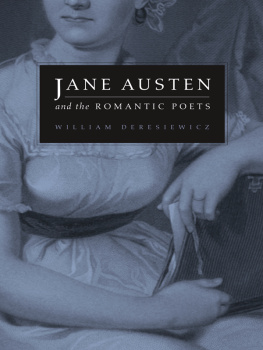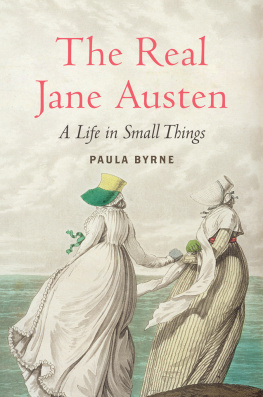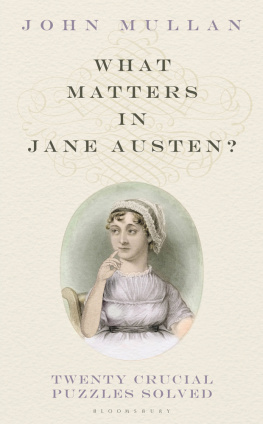

About the Contributors
Charles Bane has lived in numerous places all over the country, working variously as a country music disc jockey, an oil refinery demolition specialist, a movie critic, a television producer, an eighth-grade English teacher, and a college professor. Along the way, he managed to earn various degrees including a PhD in literature, film, and theory from LSU. He is the coauthor of A Primer of the Novel , and his articles have appeared in Stephen King and Philosophy , Hollywoods America: Twentieth-Century America Through Film , Stanley Kubrick: Essays on his Films and Legacy , and Papa, PhD: Essays on Fatherhood by Men in the Academy . Currently, he is an assistant professor of film and literature at Harding University in Arkansas, where he lives with his wife, the poet Paulette Guerin, and their three children and three cats.
Vittorio Bufacchi is head of the Department of Philosophy at University College Cork, Ireland. He earned his undergraduate degree from the University of Sussex (UK), and his MA and PhD from the London School of Economics (UK), where he worked with Professor Brian Barry. He has held visiting positions at Yale, University of Colorado (Boulder), and Dartmouth College. He is the author of Social Injustice: Essays in Political Philosophy (2012) and Violence and Social Justice (2007), and edited three volumes on philosophy and violence, including Violence: A Philosophical Anthology (2012). He is editor of the Palgrave Philosophy Today book series. His work has been translated into Spanish, Chinese, and Italian.
Nancy Marck Cantwell is associate professor and chair of the English department at Daemen College in Amherst, New York, where she teaches British literature. Her scholarly work investigates texts produced by nineteenth-century novelists from England, Scotland, and Ireland. Recent publications include an article on Thackerays Vanity Fair in Nineteenth-Century Gender Studies , as well as a chapter in The Contemporary Irish Detective Novel (2015); current essays treat gothic narrative elements in Maria Edgeworths Castle Rackrent and subversive tourism in novels by Edgeworth and Susan Ferrier. Her current book project is a study of nineteenth-century women novelists and nationalism.
E. M. Dadlez has a PhD in philosophy from Syracuse University and is professor of philosophy at the University of Central Oklahoma. Her work is mainly on the philosophy of art and literature, and on topics at the intersection (sometimes, more accurately, the collision) of aesthetics, ethics, and epistemology. She is the author of various articles on aesthetics and applied ethics, as well as Whats Hecuba to Him? Fictional Events and Actual Emotions and Mirrors to One Another: Emotion and Value in Jane Austen and David Hume . She is also a feminist ethics dilettante.
Kathleen Poorman Dougherty believes in true love but is grateful to make her own fortune without having to marry for it. She is even more grateful making her fortune doing something she loves. She holds a PhD in philosophy from the University of Oklahoma and currently serves as the dean of the School of Humanities, Social Sciences, and Education at Mount Mary University. Her philosophical work is in virtue ethics, focusing on the development of character and the moral importance of self-knowledge. Though her chosen profession does not permit a grand estate or a barouche, it makes for a satisfying and stimulating life. She does, however, continue to keep her eyes open for her own Mr. Darcy and hopes that she will judge him charitably when he crosses her path.
Keith Dromm is associate professor of philosophy in the Louisiana Scholars College at Northwestern State University. He has written Wittgenstein on Rules and Nature (2008) and Sexual Harassment: An Introduction to the Conceptual and Ethical Issues (2012), and coedited with Heather Salter The Catcher in the Rye and Philosophy (2012). He has also published articles on other subjects, such as the philosophy of film. Alas, to his continuing regret, none of this has yet to earn him an entry in the Baronetage .
Suzie Gibson teaches literature at Charles Sturt University, Australia. She has published widely across the disciplines of literature and philosophy. For example, her articles in the journals Philosophy and Literature and Philosophy Today reveal her interest in examining interrelationships between these important areas of research. Her past contribution to James Bond and Philosophy: Questions are Forever is another example of her interest in connections between philosophy, literature, and popular culture.
Richard Gilmore is professor and chair of the philosophy department at Concordia College, in Moorhead, Minnesota. He is the author of Philosophical Health: Wittgensteins Method in Philosophical Investigations , Doing Philosophy at the Movies , and Postmodern Movies: Neo-Comic Tragedies, Neo-Noirs, Neo-Westerns .
A. G. Holdier is currently the program director for Idahos Minidoka Christian Education Association, as well as an instructor for Colorado Technical University. His research interests lie at the intersection of philosophy, theology, and aesthetics with a focus on the ontology of creativity and the function of stories as cultural artifacts, themes he has developed in publications on the problem of evil, animal ethics, and the philosophy of forgiveness (forthcoming), as well as for several volumes of Open Courts Pop Culture and Philosophy series. He holds an MA in the philosophy of religion from Denver Seminary but prays that he is found to be far more interesting than Mr. Collins.
Christopher Ketcham has an earned doctorate from the University of Texas at Austin and is an adjunct professor of risk management and ethics at the University of Houston Downtown College of Business. His research interests are in risk management, applied ethics, social justice, comparative philosophy, including Emmanuel Levinas and Buddhism. He also is a frequent contributor to philosophical projects involving popular culture. Living right next door to Wilmington, Delaware, one cannot avoid seeing the wealth and influence of the DuPont family even as it has been distributed across many generations since 1802. DuPont is what Austen began to see, that industry and not land would become the new wealth generator.
David LaRocca , PhD, is visiting scholar in the Department of English at Cornell University; lecturer in screen studies for the program in cinema and photography in the Department of Media Arts, Sciences, and Studies at the Roy H. Park School of Communications at Ithaca College; and lecturer in value theory and film in the Department of Philosophy at the College at Cortland, State University of New York. Educated at Buffalo, Berkeley, Vanderbilt, and Harvard, he is the editor of The Philosophy of Charlie Kaufman (2011) and The Philosophy of War Films (2014). He is also the editor of Stanley Cavells Emersons Transcendental Etudes (2003); and his coedited volume, A Power to Translate the World , focusing on transnational representation and cultural translation appears in Donald Peases Re-mapping the Transnational series for Dartmouth College Press (2015). His most recent monograph, Emersons English Traits and the Natural History of Metaphor (2013); was researched, in part, while he served as Harvards Sinclair Kennedy Fellow in the United Kingdom. A father of two daughters, he is caught up by the expression and exercise of paideia ( ) by women, and contributed an essay on HBOs Girls to that effect (2015). Austens novels are another source of fascination, since the minds, morals, and metaphysical commitments of the girls and women in her books constitute interventions into the habits of millennia-old misogynies, including the very lexicon of thought: after all, a is a boy!
Next page


